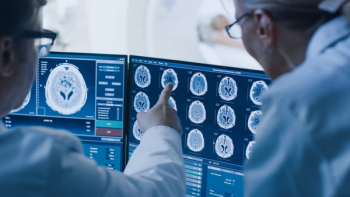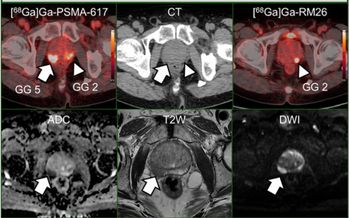
Philips Gets CE Mark for PET/MR System
With Siemens close on its heels, Philips became the first company to get the green light to market its hybrid whole body PET/MR imaging system. Royal Philips Electronics announced this week that it received a CE marking, allowing the company to begin selling in Europe.
With Siemens close on its heels, Philips became the first company to get the green light to market its hybrid whole body PET/MR imaging system. Royal Philips Electronics announced this week that it received a CE marking, allowing the company to begin selling in Europe.
Philips’ system, called the Ingenuity TF PET/MR, can be used to screen for high-risk heart disease, with the goal of imaging diseased cells before they become coronary plaques. It can also be used for oncology, detecting tumor formation or recurrence, and monitoring drug delivery to tumors on a cellular level.
The Ingenuity “is able to effectively image the prostate for the first time and detect deadly cancers in organs such as the pancreas at a significantly earlier stage," said Dominic Smith, vice president of marketing, Computed Tomography and Nuclear Medicine, for Philips Healthcare.
The PET scanner’s molecular imaging capability is combined with the MRI’s soft tissue contrast, to spotlight disease cells in soft tissue. “The Ingenuity TF PET/MR provides researchers and clinicians an unprecedented opportunity to make earlier diagnoses and personalize treatments for oncology and cardiology," said Smith.
Siemens is also in the
Philips’ Ingenuity system places MR and PET scanners almost 10 feet apart, with a table rotating the patient for scanning by each. The PET and MR machines can work independently as well. The PET/MR system is the first new modality for Philips in 10 years, and it produces up to 70 percent less ionizing radiation than the PET/CT, according to the company.
While not yet available commercially in the U.S., the company is gathering data for the FDA application from the Ingenuity’s installation at Mount Sinai School of Medicine in New York, as well as Helmholtz-Zentrum Dresden-Rossendorf (HZDR) in Dresden, Germany, and University Hospital in Geneva, Switzerland.
Newsletter
Stay at the forefront of radiology with the Diagnostic Imaging newsletter, delivering the latest news, clinical insights, and imaging advancements for today’s radiologists.













